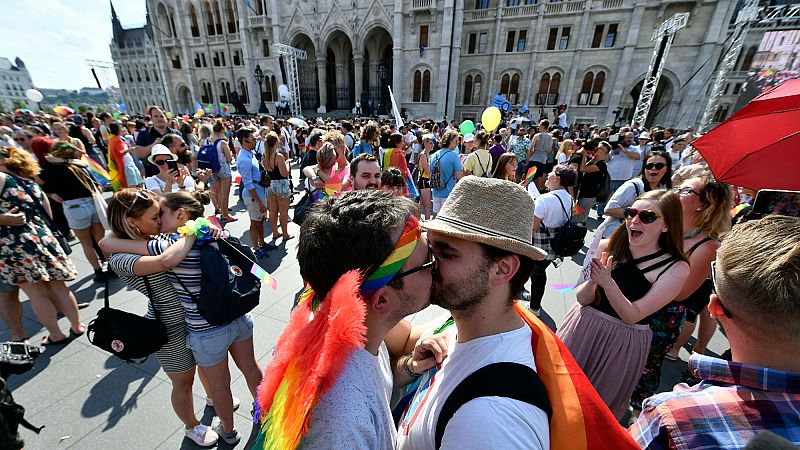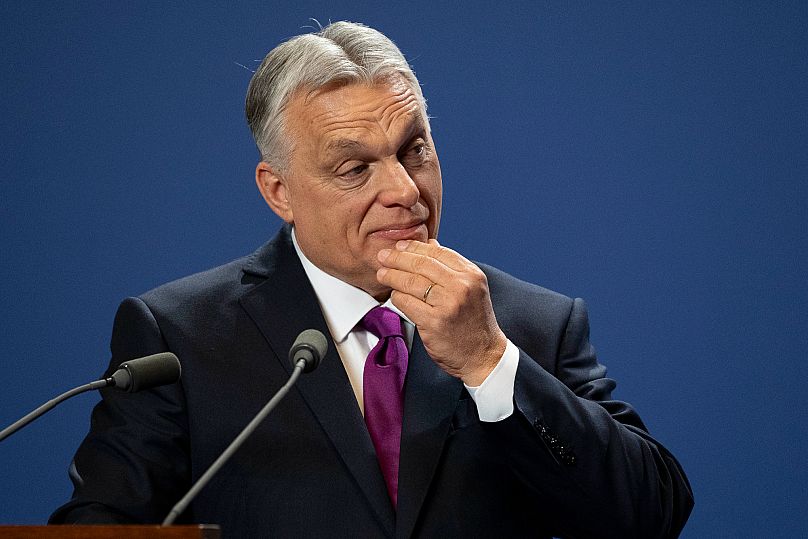
Police in the Hungarian capital issued an order on Tuesday denying a request to hold an pro-LGBTQ+ event in Budapest, a consequence of recent steps by the right-wing government aimed at banning the popular Budapest Pride march.
The police's decision to prohibit the event planned for later this month came after Hungary's parliament passed legislation in March that allowed the government to ban public events by LGBTQ+ communities.
That was followed a month later by a constitutional amendment banning such events.
Both moves were slammed by legal scholars and critics decried it as another step towards authoritarianism by what they call an autocratic government.
In its justification for prohibiting the Budapest event, which organisers requested to take place on 28 June, the city's police argued that "it cannot be ruled out, or is even inevitable, that a person under the age of 18 will be able to engage in legally prohibited conduct" if attending the proposed march.

The police also contended that the march could result in "passive victims," who, "because of the assembly's march-like nature, did not wish to attend the assembly but, because of its public nature, nevertheless become a bystander."
In a statement, the organisers called the police decision "a textbook example of tyranny."
"The police did not ban Pride but the rainbow parade that was originally allowed but in our opinion this is legally absurd," Amnesty International spokesperson Áron Demeter, one of the organisers of the march, told the 24.hu news outlet.
The ban on LGBTQ+ events, which the government says ensures children's rights to moral, physical and spiritual development, allows for fines on people organising or taking part in Pride events and the use of facial recognition software to identify them.
Hungary’s contentious "child protection" legislation prohibits the "depiction or promotion" of homosexuality to anyone under the age of 18.
Hungarian officials have given contradictory statements as to whether or not the new policies amount to a full ban on Budapest Pride.

In a speech to supporters in February, Prime Minister Viktor Orbán advised organisers "not to bother organising this year's parade," calling it "wasted money and time."
The Budapest Police attached photographs and videos to its statement depicting scenes from previous Budapest Pride events, ostensibly as evidence to corroborate its view that the march was likely to violate the new laws banning public displays of homosexuality.
France, Germany and Spain were among at least 20 European Union nations who last month called on Hungary to revise its legislation banning LGBTQ+ events, expressing concern that it runs contrary to the fundamental values of human dignity, freedom, equality and respect for human rights enshrined in EU treaties.
Organisers of Budapest Pride, which draws tens of thousands annually and is celebrating its 30th anniversary this year, have vowed that the event will go ahead as planned despite the threat of legal sanctions.







